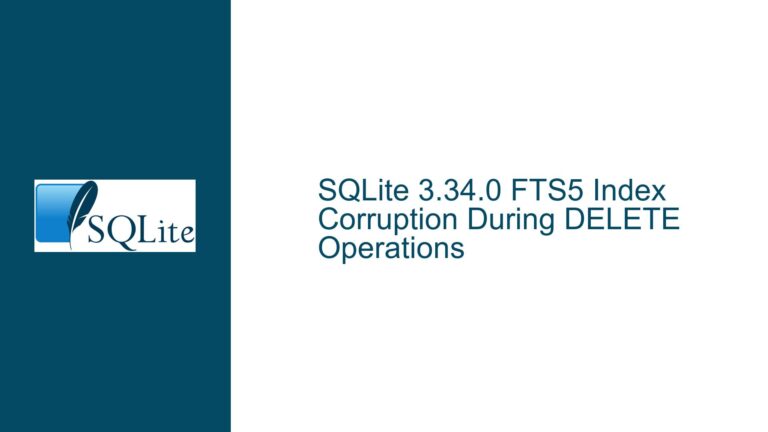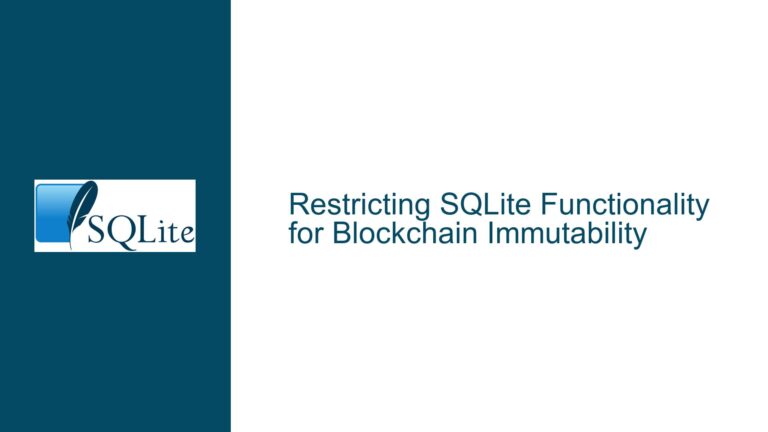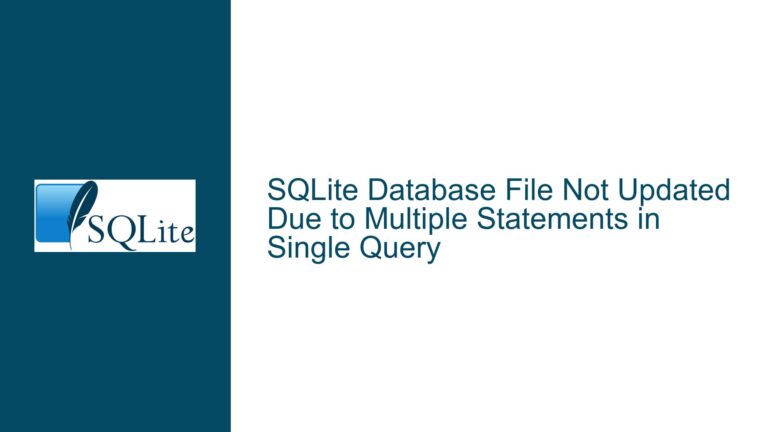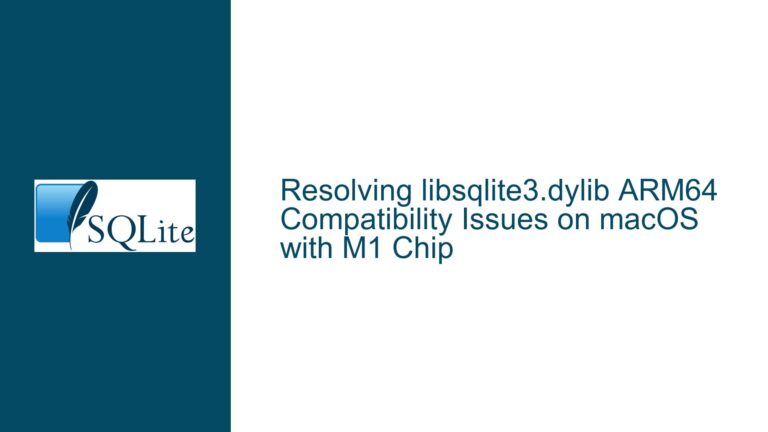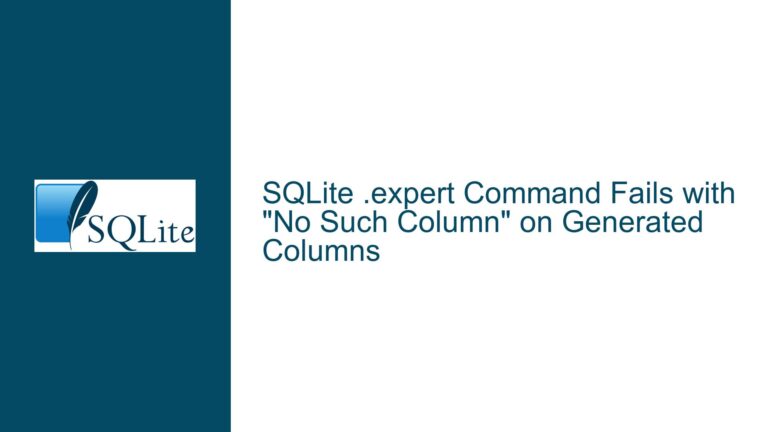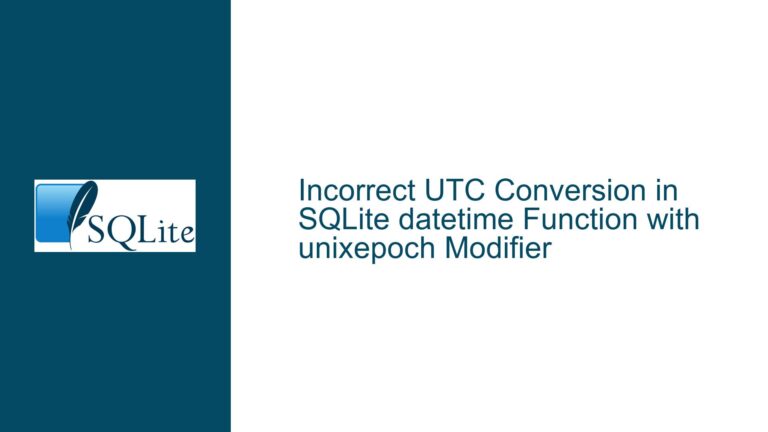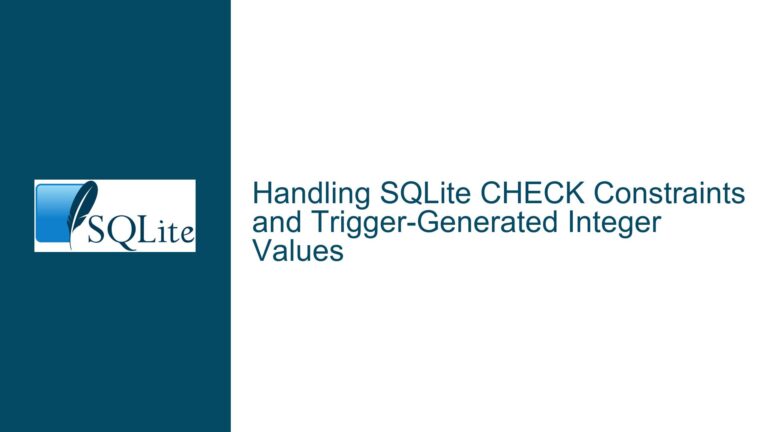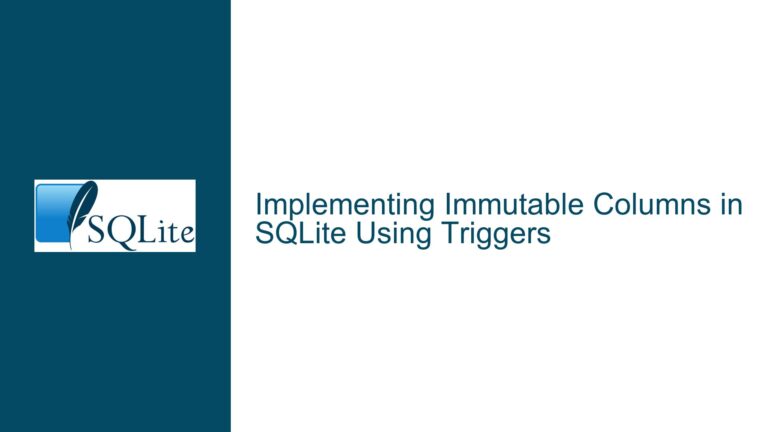SQLite 3.34.0 FTS5 Index Corruption During DELETE Operations
SQLite 3.34.0 FTS5 Index Corruption During DELETE Operations The issue at hand revolves around SQLite 3.34.0 causing database corruption when executing DELETE operations on FTS5 (Full-Text Search) indexes. This corruption manifests as a "database disk image is malformed" error, specifically when the sqlite3_step function returns SQLITE_CORRUPT. The problem was identified during the execution of the…
